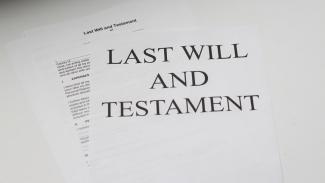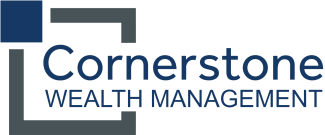
TOD or Living Trust?
TOD or Living Trust?
A look at two basic methods for shielding assets from probate.
Provided by Cornerstone Wealth Management
How do you keep assets out of probate? If that estate planning question is on your mind, you should know that there are two basic ways to accomplish that objective.
One, you could create a revocable living trust. You can serve as its trustee, and you can fund it by re-titling certain accounts and assets into the name of the trust. A properly written and properly implemented revocable living trust allows you to have complete control over those re-titled assets during your lifetime. At your death, the trust becomes irrevocable and the assets within it can pass to your heirs without being probated (but they will be counted in your taxable estate). In most states, assets within a revocable living trust transfer privately, i.e., the trust documents do not have to be publicly filed.1
If that sounds like too much bother, an even simpler way exists. Transfer-on-death (TOD) arrangements may be used to pass certain assets to designated beneficiaries. A beneficiary form states who will directly inherit the asset at your death. Under a TOD arrangement, you keep full control of the asset during your lifetime and pay taxes on any income the asset generates as you own it outright. TOD arrangements require minimal paperwork to establish.2
This is not an either-or-decision; you can use both of these estate planning moves in pursuit of the same goal. The question becomes: which assets should be transferred via a TOD arrangement versus a trust?
Many investment & retirement savings accounts are TOD to begin with. The beauty of the TOD arrangement is that the beneficiary form establishes the simplest imaginable path for the asset as it transfers from one owner to another. The risk is that the instruction in the beneficiary form will contradict something you have stated in your will.
One common situation: a parent states in a will that her kids will receive equal percentages of her assets, but due to TOD language, the assets go to the kids not by equal percentage, but by some other factor, with the result that the heirs have slightly or even greatly unequal percentages of family wealth. Will they elect to redistribute the assets they have inherited this way (in fairness to one another)? Perhaps, and perhaps not.
How complex should your estate planning be? A conversation with a trusted legal or financial professional may help you answer that question and illuminate whether simple TOD language or a trust is right to keep certain assets away from probate.
Our advisors may be reached at (440) 899-4000 or by email at info@cornerstonewealthmgmt.com.
Please visit our website at: www.cornerstonewealthmgmt.com
This material was prepared by MarketingPro, Inc., and does not necessarily represent the views of the presenting party, nor their affiliates. This information has been derived from sources believed to be accurate. Please note - investing involves risk, and past performance is no guarantee of future results. The publisher is not engaged in rendering legal, accounting or other professional services. If assistance is needed, the reader is advised to engage the services of a competent professional. This information should not be construed as investment, tax or legal advice and may not be relied on for the purpose of avoiding any Federal tax penalty. This is neither a solicitation nor recommendation to purchase or sell any investment or insurance product or service, and should not be relied upon as such. All indices are unmanaged and are not illustrative of any particular investment.
Information throughout this internet site, whether investment specific, charts, articles, or any other statements regarding market or other financial information, is obtained from sources which we, and our suppliers, believe reliable, but we do not warrant or guarantee the timeliness or accuracy of this information. The information and opinions contained in this website are provided by CWM for personal use and informational purposes only and are subject to change without notice. Nothing contained on this website constitutes investment, financial, legal, tax or other advice or is to be relied on in making an investment or other decision. Nothing on this site should be interpreted to state or imply that past results are an indication of future performance.
Citations.
1 - investopedia.com/articles/pf/06/revocablelivingtrust.asp [3/7/2019]
2 - investopedia.com/terms/t/transferondeath.asp [4/25/2019]

